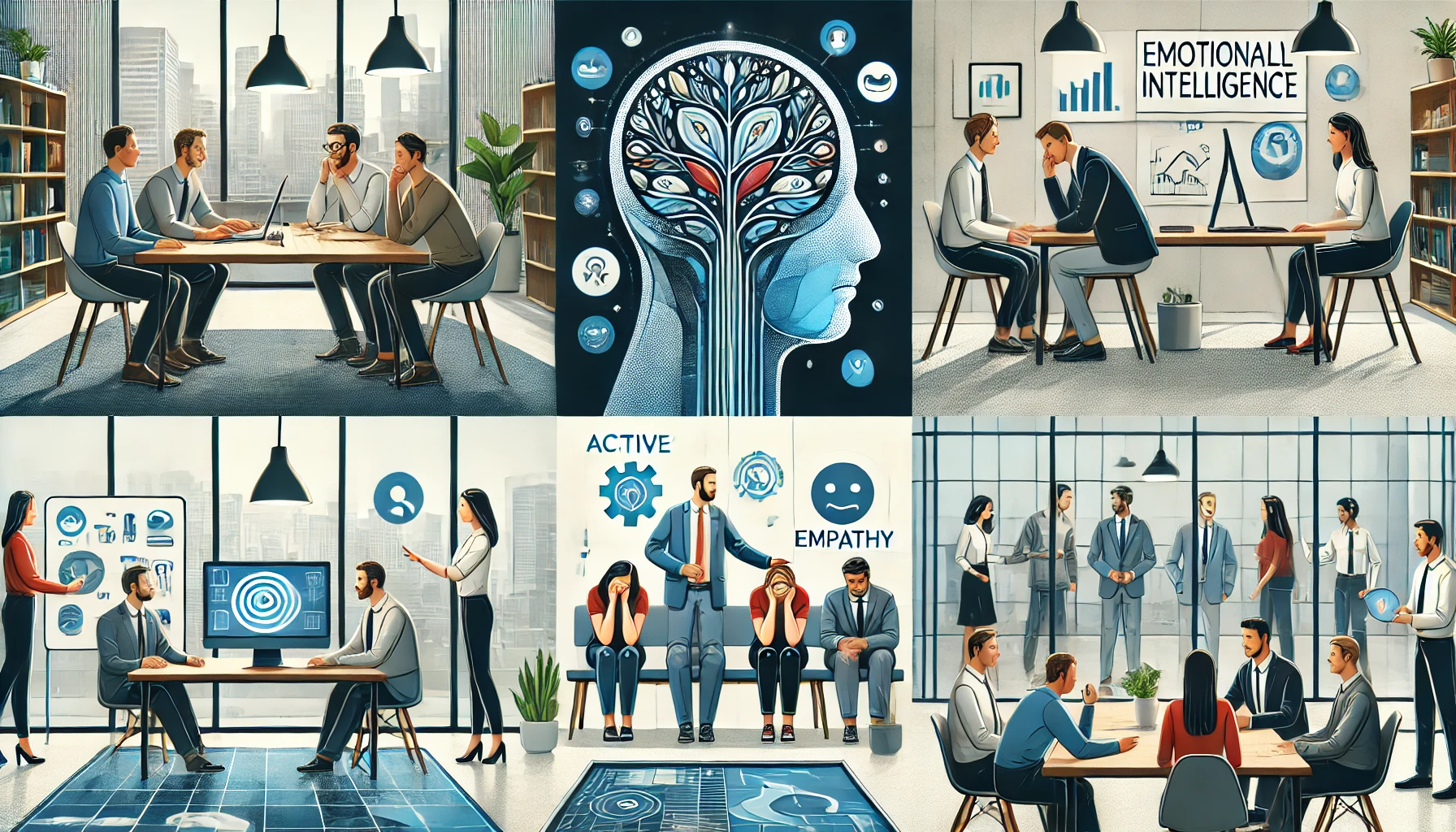Emotional intelligence (EQ) is a critical skill for professional success and workplace harmony. Employees with high EQ can understand emotions, manage stress, communicate effectively, and build strong relationships. In a professional setting, emotional intelligence enhances leadership, teamwork, and problem-solving, making it an essential trait for career growth.
Unlike technical skills, which can be learned through training, emotional intelligence requires self-awareness, empathy, and continuous personal development. A workplace with emotionally intelligent employees experiences less conflict, higher engagement, and improved productivity.
In this article, we’ll explore practical strategies to improve workplace emotional intelligence, helping professionals navigate challenges, strengthen relationships, and advance in their careers.
1. Develop Self-Awareness for Better Emotional Control
Self-awareness is the foundation of emotional intelligence in the workplace.
How to improve self-awareness at work:
✔ Regularly reflect on your emotions and how they affect decisions.
✔ Identify personal strengths and areas for emotional growth.
✔ Pay attention to body language and tone in professional interactions.
✔ Keep a journal to track emotional triggers and reactions.
💡 Example: A manager who recognizes their stress levels avoids taking frustration out on employees and instead finds healthy ways to manage tension.
2. Strengthen Empathy to Build Better Workplace Relationships
Empathy enhances understanding, communication, and collaboration.
How to cultivate empathy in professional interactions:
✔ Actively listen to understand colleagues’ perspectives.
✔ Acknowledge others’ emotions instead of dismissing concerns.
✔ Show compassion when teammates experience stress or challenges.
✔ Adapt communication styles to suit different personalities.
💡 Tip: Emotionally intelligent professionals consider how their words and actions impact others before reacting.
3. Improve Emotional Regulation in High-Stress Situations
Workplace stress is unavoidable, but how you respond defines your emotional intelligence.
Ways to regulate emotions under pressure:
✔ Take deep breaths before reacting to tense situations.
✔ Reframe negative thoughts to maintain a solution-focused mindset.
✔ Pause before responding to emotional triggers or conflicts.
✔ Practice mindfulness to stay present and reduce stress.
💡 Example: Instead of reacting defensively to criticism, an emotionally intelligent employee processes feedback calmly and uses it for improvement.
4. Enhance Communication Skills for Stronger Workplace Interactions
Effective communication is key to emotional intelligence in a professional setting.
How to improve workplace communication with EQ:
✔ Use active listening by paraphrasing key points in discussions.
✔ Maintain a respectful tone even during disagreements.
✔ Adjust body language to show openness and attentiveness.
✔ Encourage open and honest team conversations.
💡 Tip: Employees who listen and respond thoughtfully create a more positive work environment.
5. Build Conflict Resolution Skills to Maintain Team Harmony
Emotionally intelligent professionals handle disagreements with composure and fairness.
Steps to resolve conflicts effectively:
✔ Stay calm and avoid reacting emotionally.
✔ Focus on facts instead of personal attacks.
✔ Listen to both sides before making judgments.
✔ Seek win-win solutions that satisfy all parties.
💡 Example: Instead of escalating workplace tension, a leader finds common ground and encourages collaboration.
6. Strengthen Adaptability to Thrive in a Changing Work Environment
Emotionally intelligent employees handle change with resilience and confidence.
How to improve adaptability at work:
✔ Stay open to new ideas and evolving job roles.
✔ Manage stress by embracing challenges as learning experiences.
✔ View unexpected situations as opportunities for growth.
✔ Support colleagues during transitions and organizational shifts.
💡 Tip: Adaptability reduces workplace anxiety and improves team morale.
7. Foster Positive Workplace Relationships for Career Growth
Building strong connections enhances teamwork and professional development.
Ways to develop better workplace relationships:
✔ Show appreciation for colleagues’ contributions.
✔ Offer support to teammates in times of stress.
✔ Engage in team-building activities to strengthen bonds.
✔ Maintain professionalism while being approachable and kind.
💡 Example: Employees who build meaningful workplace connections enjoy higher job satisfaction and career growth opportunities.
8. Practice Self-Motivation to Maintain Consistent Performance
Motivated professionals inspire others and contribute to workplace success.
How to stay self-motivated at work:
✔ Set personal and professional goals to stay driven.
✔ Focus on tasks with a positive and growth-oriented mindset.
✔ Find purpose in work by aligning with company values.
✔ Celebrate small wins to maintain momentum.
💡 Tip: Self-motivated individuals maintain high performance and stand out as potential leaders.
Final Thoughts
Improving workplace emotional intelligence is essential for career success, professional relationships, and leadership growth. By developing self-awareness, enhancing empathy, regulating emotions, improving communication, mastering conflict resolution, strengthening adaptability, building relationships, and staying self-motivated, professionals can create a more positive and productive work environment.
Start applying these strategies today and watch your career flourish with emotional intelligence! 🚀

